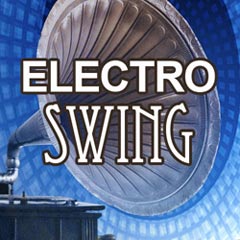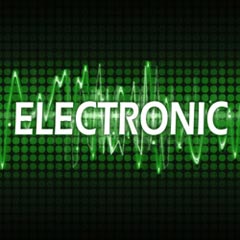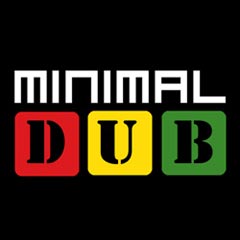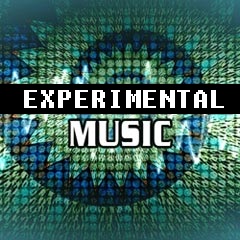Electronic
ON AIR - PROGRAMMING
More than just a way of making music, using music produced or modified by equipment, from the first Theremin or commercial synthesizer, the Moog, came an enormous amount of different genres and musical directions in constant evolution. The pulsing beat of electronic music resounds in concert halls across the world. Each song creating a unique experience that combines elements of traditional instruments, modern synths and computers. Electronic music fuses opposites; synthetic sounds colliding with organic grooves to make sonic art rivaling traditional forms of expression. Deliberate controllers balance heart pounding melodies layered with undertones, blending genres as diverse as classical and hip hop while meticulously sculpting sonorous tapestries. No boarders divide one appreciation from another, it's all part of something greater which unites an ever growing subculture electro aficionados swear by. Electronic music was born at the beginning of the 20th century with the experiments of pioneer musicians. Today is the music played with synthesizers, or computer generated instruments and sounds.
The Evolution of Electronic Music: From Theremins to Modern Synths
Electronic music has come a long way since its earliest beginnings in the early 20th century, with the invention of the Theremin and the commercial synthesizer, the Moog. Today, electronic music is an incredibly diverse genre, encompassing everything from ambient soundscapes to pounding dancefloor anthems. But what makes electronic music unique and exciting? In this post, we'll explore the evolution of electronic music, from its humble roots to its contemporary forms, and discover what makes it such a fascinating and innovative art form.
Electronic music is characterized by its use of electronic and digital instruments to produce or modify sounds. Unlike traditional acoustic instruments, electronic instruments allow musicians to create and manipulate sound in almost infinite ways. From the earliest experiments with the Theremin and the Ondes Martenot, to the development of the first commercial synthesizers by companies like Buchla and Moog in the 1960s, electronic music has always been at the forefront of technological innovation.
One of the most significant developments in electronic music was the use of computers in music production. In the 1980s, the introduction of MIDI (Musical Instrument Digital Interface) allowed musicians and producers to control multiple instruments and devices from a single interface, making it easier to compose and arrange complex music. Today, digital audio workstations (DAWs) like Ableton Live and Logic Pro offer even more powerful tools for music production, allowing musicians to create entire albums from the comfort of their own homes.
Electronic music is also notable for its ability to blend different styles and genres. From the early days of electronic music, artists like Kraftwerk and Brian Eno explored the possibilities of blending electronic and traditional instruments. Today, electronic music is often associated with dance music, but it encompasses a wide range of styles, from ambient and experimental to hip-hop and pop. Some of the most innovative and boundary-pushing artists working today, such as Aphex Twin and Burial, are electronic musicians who are constantly reinventing and pushing the boundaries of the genre.
Of course, electronic music isn't for everyone. Some people find it cold and mechanical, while others simply don't enjoy the sound. But for those who love electronic music, it represents a unique and exciting form of artistic expression. Electronic music is more than just a style of music - it's a cultural movement that has inspired generations of musicians and listeners across the world.
In conclusion, electronic music has come a long way since its earliest beginnings. From the early experiments with the Theremin to the development of the first commercial synthesizers, to the use of computers and digital audio workstations, electronic music has always been at the forefront of technological innovation. Today, electronic music is an incredibly diverse and exciting genre, blending different styles and genres in new and innovative ways. Whether you're a fan of ambient soundscapes or pounding dancefloor anthems, there's something for everyone in electronic music. So why not explore the world of electronic music for yourself, and discover what makes this innovative and fascinating art form so special?
The Evolution of Electronic Music: From Theremins to Modern Synths
Electronic music has come a long way since its earliest beginnings in the early 20th century, with the invention of the Theremin and the commercial synthesizer, the Moog. Today, electronic music is an incredibly diverse genre, encompassing everything from ambient soundscapes to pounding dancefloor anthems. But what makes electronic music unique and exciting? In this post, we'll explore the evolution of electronic music, from its humble roots to its contemporary forms, and discover what makes it such a fascinating and innovative art form.
Electronic music is characterized by its use of electronic and digital instruments to produce or modify sounds. Unlike traditional acoustic instruments, electronic instruments allow musicians to create and manipulate sound in almost infinite ways. From the earliest experiments with the Theremin and the Ondes Martenot, to the development of the first commercial synthesizers by companies like Buchla and Moog in the 1960s, electronic music has always been at the forefront of technological innovation.
One of the most significant developments in electronic music was the use of computers in music production. In the 1980s, the introduction of MIDI (Musical Instrument Digital Interface) allowed musicians and producers to control multiple instruments and devices from a single interface, making it easier to compose and arrange complex music. Today, digital audio workstations (DAWs) like Ableton Live and Logic Pro offer even more powerful tools for music production, allowing musicians to create entire albums from the comfort of their own homes.
Electronic music is also notable for its ability to blend different styles and genres. From the early days of electronic music, artists like Kraftwerk and Brian Eno explored the possibilities of blending electronic and traditional instruments. Today, electronic music is often associated with dance music, but it encompasses a wide range of styles, from ambient and experimental to hip-hop and pop. Some of the most innovative and boundary-pushing artists working today, such as Aphex Twin and Burial, are electronic musicians who are constantly reinventing and pushing the boundaries of the genre.
Of course, electronic music isn't for everyone. Some people find it cold and mechanical, while others simply don't enjoy the sound. But for those who love electronic music, it represents a unique and exciting form of artistic expression. Electronic music is more than just a style of music - it's a cultural movement that has inspired generations of musicians and listeners across the world.
In conclusion, electronic music has come a long way since its earliest beginnings. From the early experiments with the Theremin to the development of the first commercial synthesizers, to the use of computers and digital audio workstations, electronic music has always been at the forefront of technological innovation. Today, electronic music is an incredibly diverse and exciting genre, blending different styles and genres in new and innovative ways. Whether you're a fan of ambient soundscapes or pounding dancefloor anthems, there's something for everyone in electronic music. So why not explore the world of electronic music for yourself, and discover what makes this innovative and fascinating art form so special?
What are you thinking about?







